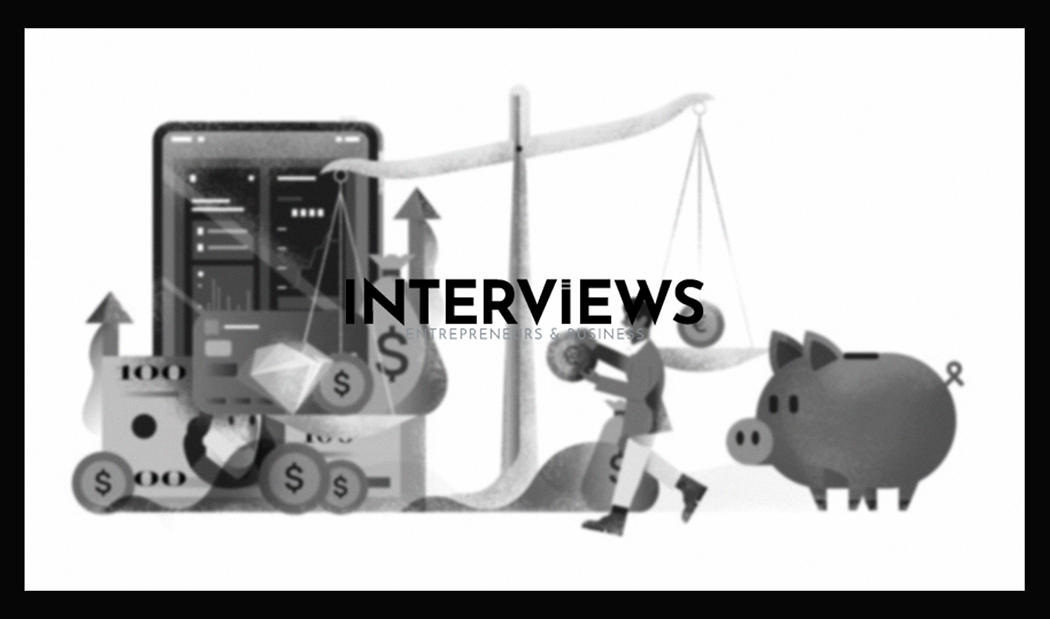Navigating the Franchise Financing Maze: Loans, LLCs, and Liquid Assets – Oh My!
Want to own a franchise? Great choice! Entrepreneurs like you help build amazing businesses. However, franchises can be costly. Unless you have a vault full of cash, financing is likely necessary. You’re not alone. Taking a loan for a franchise purchase is common. It’s a viable way to obtain necessary capital.
Remember, borrowing money is significant. Be diligent when evaluating risks. Have a well-structured plan to repay the loan. It is essential to think long-term. This journey is not a sprint; it is a financial marathon.
LLCs and Loan Land: A Match Made in Business Heaven?
Good news for Limited Liability Company (LLC) fans! Lenders like to provide loans to LLCs along with sole proprietors and corporations. No bias here! Structuring your franchise as an LLC opens up loan opportunities. There are compelling reasons for doing so.
Franchise Funding Fiesta: Your Options Laid Bare
Let’s explore how to secure your franchise funding. You have multiple options, more than merely vanilla or chocolate flavors.
- Franchisor Financing: Your Franchise Fairy Godmother? Many franchisors want to do more than sell you a franchise. They may offer help with financing. In-house options might include payment plans or direct loans. You should ask; they could be your fairy godmother.
- Bank Loans: The Traditional Route (with a Franchise Twist). A strong business plan is vital here. Target banks familiar with franchises. They are more likely to approve your application. Banks experienced with franchise agreements are less prone to reject you.
- SBA Loans: Uncle Sam to the Rescue! The Small Business Administration (SBA) acts like that reliable uncle who brings financial aid (minus the family awkwardness).
- 7(a) Loan: The Franchise Favorite. The SBA 7(a) loan is a top choice for franchise financing. This loan is the SBA’s most common one used for buying franchises. It’s versatile. Discover more about terms, conditions, and eligibility for SBA loans.
- 504 Loan: Real Estate Dreams. Need land or a building for your franchise? The SBA 504 loan is often your best option for purchasing commercial real estate. If a new building with your franchise sign is part of your vision, this could be the right choice.
These loans go up to $5 million, usually enough for most franchises.
- Franchise Grants: Free Money (Kind Of)! Grants are like unexpectedly finding cash in your pocket – helpful and exciting. Various organizations offer franchise grants to support businesses. While they can be competitive, the potential for free money is worth investigating.
- Microloan Program: Bad Credit? Baby Steps to Franchise Ownership. Struggling with credit? Don’t lose hope! The SBA’s Microloan Program helps small businesses like yours. It might be a solid option for securing a franchise loan even with imperfect credit. To learn more, check out this guide on AllBusiness.com.
LLC Structure: Your Franchise Fortress of Legal and Financial Awesomeness
Why choose an LLC for your franchise? Consider it your business armor. It provides legal protection by safeguarding personal assets from debts and lawsuits while offering potential financial benefits. It establishes a solid foundation for long-term success. Simply put, it’s a wise decision.
Franchising on a Budget: Making Dreams a Reality (Without Robbing a Bank)
Lacking sufficient funds? No issue! Franchise ownership is feasible for those without vast riches.
- Low-Cost Franchises: Entry-Level Entrepreneurship. Certain franchises, particularly service-based or home-based options, have lower startup expenses. Think mobile services or consulting; they require less upfront capital.
- Bad Credit Options: Persistence Pays Off. Bad credit need not be a deal-breaker. Look into those SBA loans we discussed or find franchisors who offer flexible financing options. It may take some effort, but choices exist.
Show Me the Money! Loan Amounts for LLCs – How Much Can You Borrow?
You have your LLC and readiness for loans… so how much can you borrow? An LLC might secure up to $5 million or even more! But remember, it varies based on several factors:
- Lender: The Gatekeeper of Funds. Banks, credit unions, and online lenders each have unique limits and criteria. Compare options and find the best lender match for your situation.
- Loan Type: Term Loan vs. Line of Credit – Know the Difference. Your choice between term loans or lines of credit impacts borrowing amounts. Determine your needs and select the suitable loan type.
- LLC Creditworthiness: Your Financial Report Card. A robust credit score improves chances of securing larger loans. Strong credit signifies fiscal responsibility.
- Financial Stability: Show Me the Profitability! Lenders require evidence of your capacity to repay the loan. They’ll examine your LLC’s financial strength, revenue, and overall health. Numbers do matter.
- Collateral: Something to Sweeten the Deal. Providing collateral, such as property or equipment, may enhance lenders’ confidence and augment your borrowing power. It illustrates commitment and seriousness about repayment.
- Time in Business: Experience Points Matter. Lenders favor established businesses with proven success records. A little experience goes a long way in gaining trust.
LLC Credit Score: Building Business Credit from Scratch
- EIN: Your Business Social Security Number. Obtain a Federal Tax ID Number (EIN). It is vital for setting up business accounts and developing credit history.
- Business Bank Account: Separate Finances, Separate Credit. Open a dedicated business account. This step distinguishes personal and business funds, creating a financial presence for your LLC.
- Vendor/Supplier Credit: Trade Lines are Your Friend. Create credit with reliable vendors who report to credit bureaus. Prompt payments build strong relationships.
- Business Credit Cards: Use Wisely, Build Credit Steadily. Utilize business credit cards prudently. Avoid maxing them out, pay balances consistently. Treat them as credit-building instruments rather than free funds.
- Loans and Lines of Credit: Strategic Borrowing. Secure loans or lines of credit (even small amounts) and make timely repayments. Responsible borrowing is fundamental for establishing creditworthiness.
Loan Eligibility and Credit: What Lenders are Really Looking For
- Credit Score Impact: Yes, It Matters. A lower score affects eligibility for loans and may lead to higher interest rates. Still, it’s not a lost cause.
- Minimum Credit Score: The Magic Number (Sort Of). Minimum credit score standards vary among franchisors. Aim for a score of 680 or higher; it’s typically ideal.
- SBA Loan Perks: More Lenient, Bigger Loans. Those SBA loans may offer more flexibility regarding credit requirements compared to traditional bank options, with impressive loan limits (up to $5 million!).
- exploring.
Franchise Financial Fitness Test: Are You Ready for Ownership?
Franchisors have a checklist to see if you fit the franchise mold. It is a fitness test. What do they want?
- Credit Score: (Yes, it’s back). Minimum credit scores usually hover around 680.
- Previous Industry Experience: Been There, Done That? Experience in the industry helps. It’s not essential but a definite plus.
- Management Experience: Leadership Skills Required. Can you lead? They value management abilities.
- Ongoing Costs: Are You Prepared for the Long Haul? Franchisors want you to grasp ongoing costs like royalties and marketing fees.
- Training and Support: Are You Coachable? Franchisors offer support. They want to see if you are willing to learn and stick to their established system.
SBA Loan Eligibility: The Basics to Check Off
If you wish to pursue an SBA loan, here are some key points:
- Operating Business: Not Just an Idea on a Napkin. Your business must be operational.
- Operate for Profit: Making Money is the Point. Your franchise should be profit-driven.
- Located in the U.S.: Must Be Stateside. Your business location should be in the United States.
- Small Business Size: Meeting SBA Standards. Your business size must meet the SBA’s definition of “small.”
Franchise Cost Deep Dive: McDonald’s, Chick-fil-A, and Starbucks (the Odd One Out)
Franchise fees show great variation. Here are examples from well-known brands:
- McDonald’s: The Golden Arches Price Tag.
- Initial Franchise Fee: $45,000
- Total Investment: Between $464,500 and $2.3 million
- Liquid Assets Required: At least $500,000
- Chick-fil-A: Surprisingly Affordable Entry?
- Initial Franchise Fee: Only $10,000.
- Chick-fil-A covers some costs, assisting significantly. Find out about Chick-fil-A costs here.
- Low Failure Rate: Many franchises succeed; it’s a positive indicator.
- Starbucks: Franchise Enigma. Starbucks in the US and Canada do not offer traditional franchises. They operate mostly as company-owned or licensed. Current options seem limited for franchise hopes.
Financial Assistance to the Rescue: Hello Alice Grant
Check out Hello Alice Grant. They provide millions in grants to help small businesses. Their mission focuses on assisting entrepreneurs to launch and grow. Look for suitable programs that can help with your franchise ambitions!
This is your guide to the franchise loan process. It may appear complex, but armed with knowledge and preparation, you can pursue franchise ownership. Good luck on your journey!





